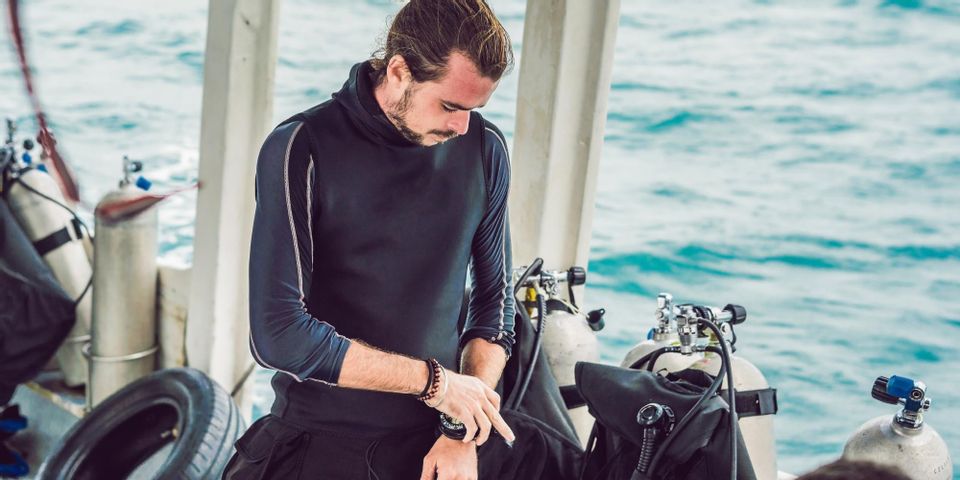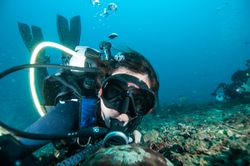
Owning your own scuba gear includes taking care of it so that it can function properly and last for years to come. Even if you’re a beginner, learning to care for your equipment isn’t difficult and, once you learn the basics, it will soon be second nature to you. Here are a few guidelines to help you get started.
4 Tips for Cleaning Your Scuba Gear
1. Eliminate Mold From Wetsuits
Leaving a wetsuit to dry without taking extra steps can lead to mold and unpleasant odors. To avoid these issues, ask your scuba center about neoprene-based cleaning products, which can be used with warm fresh water to clean your suit.
The wetsuit, diving hood, and gloves should all be cleaned on the inside and outside to prevent mildew from growing. Once the gear has been washed, it should be hung to dry, using hangers that are specially designed for this material.
2. Care for Fins & Goggles
Immediately after each use, the fins and goggles should be thoroughly rinsed with fresh water. Once the fins dry, you can use the inserts that were included with the purchase to support their shape. Otherwise, hang them from their straps to avoid crushing the tips.
Goggles that have dried should be stored in the hard case that they came with to protect them during storage. This helps avoid scratches on the lenses, so be sure to hang onto that case after buying a new set.
3. Protect Your Regulators
 Scuba diving regulators use complex components that can be damaged by prolonged exposure to the corrosive particles in salt water. It’s important to rinse your regulator with fresh water thoroughly after each use. You can use the compressed air that’s still in the lines to expel excess water before securing the dust cap in place.
Scuba diving regulators use complex components that can be damaged by prolonged exposure to the corrosive particles in salt water. It’s important to rinse your regulator with fresh water thoroughly after each use. You can use the compressed air that’s still in the lines to expel excess water before securing the dust cap in place.
4. Clean the Tank Cylinder
The tank cylinder doesn’t need much care, but it should be thoroughly rinsed with fresh water. If salt water is left to dry on the tank, it will cause the metal to corrode over time. This can compromise the container and make it more difficult to turn the control knobs.
Once you remove any debris that may have clung to the tank and thoroughly rinse the cylinder, allow it to dry completely. Once dry, it can be stored with the rest of your gear.
If you’re interested in scuba diving, instructions from experienced divers can help. Phoenix Scuba in Maricopa County, AZ, has spent more than 20 years training and certifying divers, so they can help you become familiar with safe practices. Even if you’re experienced, a refresher course or an updated certification can help you hone your skills. To learn more about the classes they offer, visit their website. Sign up for the course by calling (602) 374-3206.
About the Business
Have a question? Ask the experts!
Send your question

